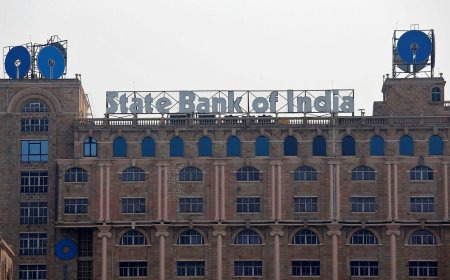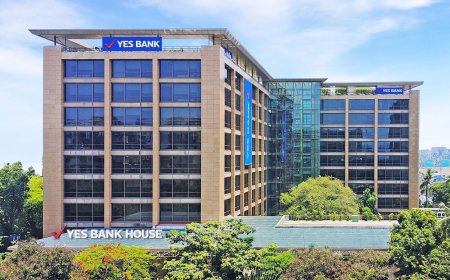Thai protesters call for Prime Minister Paetongtarn's resignation
Massive protests erupt across Thailand calling for PM Paetongtarn Shinawatra's resignation over economic mismanagement and unmet reform promises.

Political Storm Brews in Bangkok
Bangkok, Thailand — June 28, 2025: Tens of thousands of Thai protesters poured into the streets of central Bangkok this week, demanding the resignation of Prime Minister Paetongtarn Shinawatra, just over a year into her tenure. The protests, which began as small student-led rallies, have quickly escalated into a nationwide movement with broader demands encompassing economic reforms, transparency, and checks on executive power.
The unrest signals a turning point in Thai politics, with the daughter of former premier Thaksin Shinawatra now grappling with the same populist discontent that once propelled her family's political dynasty.
A Crisis of Confidence
At the heart of the protests lies public frustration over what critics describe as Paetongtarn's inability to tackle key economic and governance challenges. Inflation remains stubbornly high at 4.8%, youth unemployment is at a five-year peak, and small businesses are still recovering from the aftershocks of the COVID-19 pandemic.
“We supported her for change, not more of the same,” said Napat Theerasak, a 24-year-old protester from Chiang Mai. “The promises on education reform, decentralization, and curbing monopolies feel like empty slogans now.”
Paetongtarn, who assumed office in mid-2024 as the first female prime minister in over a decade, campaigned on a platform of social welfare expansion and progressive reforms. However, critics argue her administration has struggled to differentiate itself from the military-backed governments that preceded it, especially regarding media freedom and constitutional amendments.
Government Response and Growing Backlash
In a televised address Friday evening, Paetongtarn appealed for calm and acknowledged the protesters’ concerns. “I hear your voices. Reforms take time, and democracy must be nurtured, not rushed,” she said, ruling out resignation but hinting at a possible cabinet reshuffle.
Yet her reassurances have done little to quell public anger. Protest leaders from the "Future Front" coalition issued a 30-day ultimatum, threatening a nationwide general strike unless Paetongtarn resigns or calls a snap election.
Security has been heightened in Bangkok, with over 8,000 riot police deployed across major government installations. Clashes on Thursday evening near Victory Monument left 34 injured, including 12 police officers.
Analysts Weigh In
Political analysts are divided on the likely trajectory of the unrest. Chulalongkorn University’s Professor Kitti Nopparat believes the protests mark a "crisis of legitimacy" for Paetongtarn.
"Her government's core voter base—young urbanites and progressive voters—feel betrayed," he noted. "Unless she makes structural concessions soon, the movement will only grow more defiant and organized."
However, others argue Paetongtarn still has political capital to withstand the storm. “The Pheu Thai Party remains the most electorally dominant force. These protests, while loud, may not reflect the broader electorate,” said Somchai Rattana, a columnist with the Bangkok Post.
Economic Fallout and Investor Sentiment
The escalating protests have rattled Thailand’s financial markets. The SET Index fell 2.6% this week, with tourism, retail, and real estate stocks taking the largest hit. The baht has also weakened to 38.2 against the U.S. dollar—its lowest level since early 2023.
Tourism operators are particularly anxious. “We had just started seeing consistent tourist footfall again. Another round of political instability could undo all our recovery progress,” said Siriporn Laothong, owner of a travel agency in Phuket.
Foreign investors are adopting a cautious stance. According to JP Morgan Asia, “Political risk in Thailand is now a front-and-center consideration for portfolio decisions, especially in sectors like infrastructure, hospitality, and banking.”
Investor Outlook: Wait-and-Watch Mode
With uncertainty looming, analysts recommend a defensive strategy for Thai equities. “Investors should consider rebalancing portfolios toward more resilient sectors like telecoms and export-driven manufacturing,” said Piyawat Sarun, head of research at Krungsri Securities.
Bond markets remain relatively stable, suggesting that long-term investors still view Thailand as fundamentally sound. However, further escalation could force a policy rate review by the Bank of Thailand, which has so far maintained a cautious but steady course.
The central bank has not commented directly on the protests but reaffirmed its focus on inflation control and macroeconomic stability in a statement earlier this week.
Path Forward
The coming weeks will be pivotal. With student unions, labor groups, and even rural farmers aligning with the protest movement, Paetongtarn faces a tough balancing act between appeasing dissenters and preserving authority.
International observers, including representatives from ASEAN and the European Union, have urged both sides to pursue dialogue and avoid violence. The UN Human Rights Office in Bangkok expressed concern over reports of excessive force during protests.
For now, Paetongtarn’s political future remains uncertain. Whether she emerges as a reformer under pressure or falls to the same fate as predecessors toppled by unrest, her response to this moment could define the next decade of Thai democracy.
What's Your Reaction?
 Like
0
Like
0
 Dislike
0
Dislike
0
 Love
0
Love
0
 Funny
0
Funny
0
 Angry
0
Angry
0
 Sad
0
Sad
0
 Wow
0
Wow
0












































































